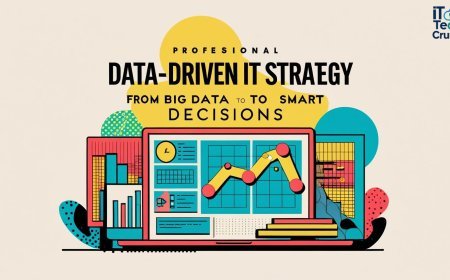How Quantum Computing Is Reshaping Complex Problem Solving

How Quantum Computing Is Reshaping Complex Problem Solving
For decades, computers have helped humanity tackle complex problems-from weather prediction to financial modeling and drug discovery. But even the most advanced classical systems have their limits. As data sets grow and problems become more intricate, the need for a different kind of computing power has emerged. That’s where quantum computing enters the picture, not as a replacement for traditional computing, but as a transformative complement that’s changing how we think about solving complexity.
Quantum computing draws its strength from principles of quantum mechanics, such as superposition and entanglement. Unlike classical computers that process bits as 0s or 1s, quantum computers use qubits, which can represent multiple states at once. This allows quantum systems to process vast amounts of information simultaneously, exploring many possible solutions at once instead of evaluating them one at a time.
This isn’t just about speed-it’s about solving problems that were previously unsolvable or impractical. In areas like cryptography, materials science, logistics, and artificial intelligence, quantum computing is beginning to offer breakthroughs that stretch far beyond what conventional machines can achieve. For example, in the pharmaceutical industry, quantum computers could help simulate how molecules behave at the atomic level, drastically accelerating the discovery of new treatments. In supply chain management, they can optimize routes and resources in ways that save both time and money on a global scale.
What makes quantum computing exciting is also what makes it challenging. Building and maintaining quantum systems requires incredibly precise conditions-like operating at temperatures colder than outer space. These machines are sensitive, complex, and currently not yet ready for widespread, everyday use. But that doesn’t mean the potential isn’t already shaping how businesses and researchers approach their toughest questions.
Organizations are investing heavily in quantum research not just for what it can do today, but for what it promises tomorrow. They’re building hybrid approaches, where quantum and classical computing work hand in hand-using the strengths of each to drive better results. And while large-scale, fault-tolerant quantum computers are still in development, small-scale quantum processors are already helping researchers experiment and push the boundaries of what’s possible.
There’s also a growing effort to make quantum knowledge more accessible. Universities are developing quantum programs, and companies are offering platforms for developers to write quantum algorithms-even without a physics degree. The field is becoming more collaborative and open, which is essential for progress.
Quantum computing isn't just a new tool-it's a shift in how we think about information, logic, and innovation. It encourages us to look beyond linear solutions and imagine a future where the hardest problems aren’t just manageable-they’re solvable in ways we’re only beginning to understand. As this technology matures, it will not only change computing-it will reshape entire industries and redefine the limits of possibility.


























